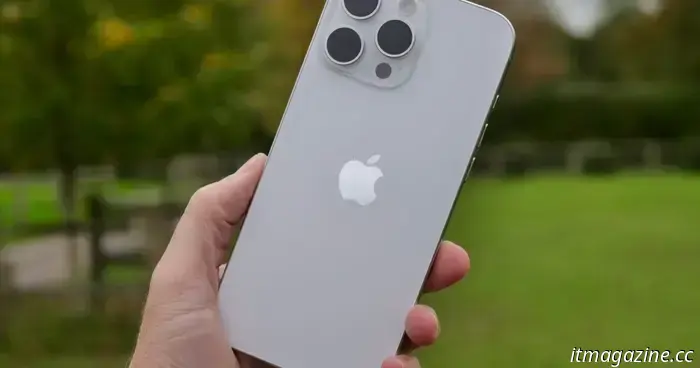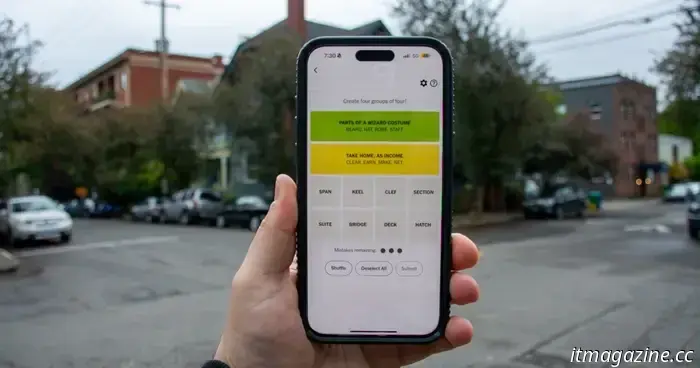
The iPhone 18 might see a price hike, but not for the reasons you might expect.
Apple iPhone 16 Pro Max
Andy Boxall / Digital Trends
Amid the weekly updates on tariffs, there's an additional element that could lead to higher prices for Apple’s iPhones: the transition to TSMC’s 2nm process node. A recent leak suggests that Apple, MediaTek, and Qualcomm are progressing towards adopting the 2nm process, which may drive up the costs of some top smartphones.
This concerning information came from the frequent leaker Digital Chat Station on Weibo. The source indicated that Apple, Qualcomm, and MediaTek are projected to migrate to TSMC’s 2nm process by 2026. While this is positive news in terms of performance, it does raise concerns about pricing. TSMC’s 2nm process is expected to be more efficient and deliver enhanced performance, but it will also be more expensive than the 3nm and 5nm nodes. Consequently, the leaker is forecasting, “There may be another round of price increases for new phones.”
Though it's rumored that Apple won't use the 2nm process for the iPhone 17, many anticipate that the iPhone 18 lineup will incorporate it. Analyst Ming-Chi Kuo initially forecast that the more rapid and efficient 2nm node would be designated for Apple’s premium models, beginning with the iPhone 18 Pro.
However, as reported by Wccftech, TSMC’s manufacturing yield has exceeded expectations, currently reaching around 70% as of January. This development implies that there will be an increased supply of 2nm chips available. For consumers, this generally suggests favorable news, as the entire iPhone 18 series could be enhanced by a quicker and more efficient chip, improving performance and possibly battery life.
On the flip side, if Apple faces higher expenses for the 2nm process from TSMC, it could lead to increased prices across its entire phone range.
Wccftech further explores the potential price trajectory for Apple products. The publication notes that Apple is unlikely to reduce its profit margins in order to maintain prices, which means that iPhones built on a 2nm process could see significant price increases in 2026. Additionally, Apple will need to navigate potential import tariffs. If reciprocal tariffs are enacted, the iPhone 16 Pro could reportedly rise in price from $999 to $1,400.
The existing generation of iPhones might experience minimal price hikes (if any), but it appears that future generations could be more expensive. As always, it’s important to remember that nothing is certain until Apple confirms it, and with the iPhone 18 still more than a year away, current predictions are largely speculative.
Monica is a computing writer at Digital Trends, with a focus on PC hardware. Since joining the team in 2021, Monica has written…
Official OnePlus 13T teaser reveals iPhone 16 Pro similarities
Rumors about forthcoming smartphones are emerging daily, including the iPhone 17 Slim and Samsung's upcoming Galaxy Z Fold 7 and Z Flip 7. However, one phone that has garnered a surge in teasers recently is the OnePlus 13T, set to launch next. The Chinese manufacturer has already confirmed the OnePlus 13T was in the pipeline - quite humorously on April Fools’ Day - and the device has appeared on AnTuTu showcasing impressive benchmark results. Additionally, OnePlus previously released a teaser image highlighting an action button replacing the signature action slider, and now another official teaser image has surfaced.
Read more
Even the iOS 19 leakers can’t agree on what the next iPhone update will look like
Front Page Tech, the YouTube channel responsible for many of the most talked-about iOS 19 leaks, has posted a new video displaying additional renders of the anticipated OS redesign. The last render shared a couple of weeks ago led Bloomberg's Mark Gurman to express skepticism regarding their accuracy on X — a post he has since reshared in reaction to the latest video.
iPhone prices under pressure as Trump threatens 104% tariff on China
Another day, another tariff. On Monday, President Donald Trump threatened to impose an additional 50% tariff — in addition to the 54% already in place — if China does not withdraw the 34% tariff recently enacted on imports from the U.S., which was a response to the tariffs Trump announced on April 2. This exemplifies the nature of a trade war.






Other articles
 This Gigabyte gaming laptop featuring an RTX 4060 and 32GB of RAM is priced at only $1,000.
The Gigabyte G6 gaming laptop can be purchased from Best Buy for $1,000, a great deal for a machine equipped with the Nvidia GeForce RTX 4060 and 32GB of RAM.
This Gigabyte gaming laptop featuring an RTX 4060 and 32GB of RAM is priced at only $1,000.
The Gigabyte G6 gaming laptop can be purchased from Best Buy for $1,000, a great deal for a machine equipped with the Nvidia GeForce RTX 4060 and 32GB of RAM.
 Sunderfolk transforms the strategy game experience by drawing inspiration from Jackbox.
Sunderfolk is transforming the way we experience strategy RPGs, similar to how the Jackbox Party Pack series changed the landscape of party games. Since its announcement last autumn, Sunderfolk's innovative take on this genre has caught my interest. It is a cooperative strategy RPG influenced by tabletop games, but it’s […]
Sunderfolk transforms the strategy game experience by drawing inspiration from Jackbox.
Sunderfolk is transforming the way we experience strategy RPGs, similar to how the Jackbox Party Pack series changed the landscape of party games. Since its announcement last autumn, Sunderfolk's innovative take on this genre has caught my interest. It is a cooperative strategy RPG influenced by tabletop games, but it’s […]
 I purchased $9 AirPods Pro, and the outcomes were astonishing!
Can a $9 pair of AirPods Pro purchased in China serve as a substitute for a pair bought from Apple? I did just that, and what I discovered is astonishing!
I purchased $9 AirPods Pro, and the outcomes were astonishing!
Can a $9 pair of AirPods Pro purchased in China serve as a substitute for a pair bought from Apple? I did just that, and what I discovered is astonishing!
 NYT Connections: clues and solutions for Friday, April 18.
Connections is the latest puzzle game from the New York Times, and it can be pretty challenging. If you require assistance in solving today's puzzle, we're here to support you.
NYT Connections: clues and solutions for Friday, April 18.
Connections is the latest puzzle game from the New York Times, and it can be pretty challenging. If you require assistance in solving today's puzzle, we're here to support you.
 This TCL soundbar is now discounted to $100 today, down from its original price of $260.
The TCL Alto 8 Plus Soundbar offers impressive Dolby Atmos virtualization, and at present, this midrange audio system is available for $100 at Walmart.
This TCL soundbar is now discounted to $100 today, down from its original price of $260.
The TCL Alto 8 Plus Soundbar offers impressive Dolby Atmos virtualization, and at present, this midrange audio system is available for $100 at Walmart.
The iPhone 18 might see a price hike, but not for the reasons you might expect.
Apple's upcoming iPhones are expected to utilize TSMC's 2nm process node, which may lead to a significant increase in price.
